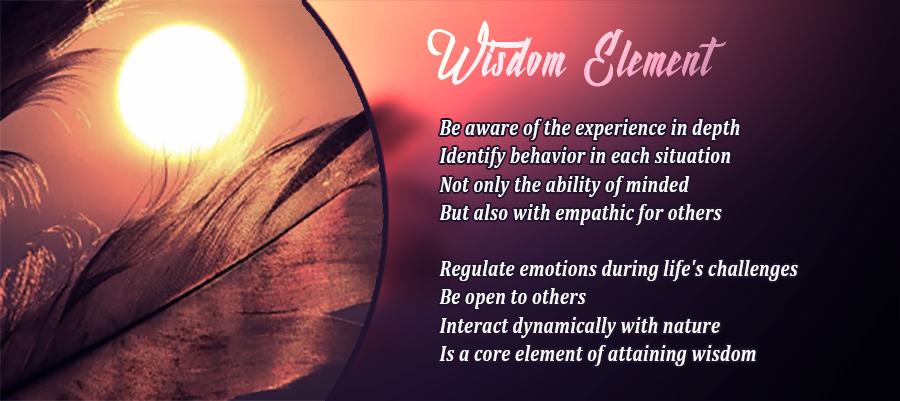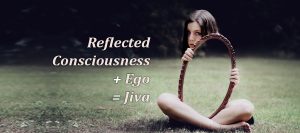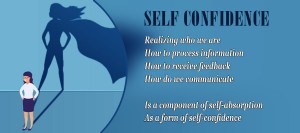We all experience challenges in our lives, and probably most of us feel we have learned something from the challenges we have encountered. Some people learn things that make them wiser over their life course while others become (or remain) rigid, bitter, depressed, superficially content, or overly self‐involved? Little theoretical and even less empirical work has directly addressed how wisdom might develop over a lifetime. In this chapter, we present a conceptual model of the development of wisdom, based on research and theory concerning wisdom, life‐span development, growth from negative experiences, autobiographical memory, and the life story.
Although wise persons are not a homogeneous group and have highly individualized developmental trajectories, we postulate that some basic tenets are essential for the development of wisdom.
1. Wisdom through Life Experience
Life experience plays an important role in the development of wisdom. This idea is supported by
- previous wisdom theories,
- life‐span developmental views of adulthood, and
- the literature on personal growth as a result of negative experiences.
The role of life experience in wisdom theories. Life experience may be the most typical characteristic that laypeople associate with wisdom.
Most laypeople believe that a broad spectrum of experience is important for the development of wisdom. There is less agreement about the role of fundamental challenges, such as facing mortality or losing significant others, for the development of wisdom, but most people also consider such experiences important.
There are two general theoretical lines of thinking about the development of wisdom. They differ in their emphasis on first‐person life experience, particularly with the role of critical life challenges. The two views have been summarized as concerning personal wisdom (i.e., wisdom as self‐related knowledge acquired through direct personal experience) and general wisdom (i.e., wisdom as world knowledge that can also be acquired in more indirect ways).
In spite of these differences, however, all wisdom theorists likely agree that wisdom is acquired incrementally over the life course and that this occurs through some level of confrontation, direct or indirect, with the fundamental themes and questions of human existence.
The dynamic between self‐resources and life experiences that causes some people to grow towards wisdom more than others has not yet been conceptualized in detail.
Many people do not develop wisdom with age. Life‐span theories generally assume broad heterogeneity of developmental trajectories across adulthood.
Old age is a wisdom‐fostering phase for those people who are already “on track” towards wisdom.
One obvious argument for old age being related to higher levels of wisdom is that if life experience is cumulative, the amount of experience should be correlated with chronological age. As we will argue in the following, however, an individual’s amount of experience in itself is not a sufficient predictor of wisdom the way individuals deal with and integrate experiences is crucial.
Old age may specifically contribute to wisdom‐fostering ways of dealing with experiences in some individuals: it brings new perspectives due to losses of primary control in some life domains as well as an appreciation of well as other conditions that limit individuals’ subjective lifetime) may foster the development of wisdom in individuals who have sufficient levels of psychological resources to deal with such experiences constructively.
Note that at the other end of the life span, in childhood, wisdom development is only emergent both because the person has encountered very few experiences and because they do not have the social or cognitive skills necessary to integrate challenging experiences. The emergence of the life story in adolescence allows for wisdom development to begin in earnest.
Although everyone has their share of challenges across life, however, most do not develop high levels of wisdom. Gaining wisdom is not simply a matter of experiencing many or particular types of life events. Rather, people who bring certain resources to bear in facing difficult challenges are more likely to grow from such experiences.
The goal is to develop a specific framework for understanding why and how some people incrementally develop wisdom through dealing with life experiences, while others do not.
We argue that four resources are particularly important for the development of wisdom through life experiences. People who have a strong sense of mastery, high levels of openness, a reflective attitude, and emotion regulation skills combined with empathy, are more likely to :
- (encounter experiences that can foster wisdom across their lives,
- deal with life challenges in a manner that promotes wisdom, and
- reflect on and integrate such experiences into their life story in a way that allows them to grow and learn from past experience over time.
2. Self Mastery
We define a sense of self-mastery as wise individuals’ belief that they are able to deal with life’s challenges, whatever they may be. This does not mean that they have exaggerated or illusory notions of control: they are perfectly aware of the uncontrollability of many of life’s events, but do not feel helpless or victimized by the knowledge that some things cannot be predicted or controlled.
Thus, a sense of mastery, as defined here, is an inherently dialectical concept entailing active control but also the acceptance of uncontrollability, and the ability to balance these two in response to what a situation requires.
There are things in life that cannot be changed, and then you have to accept them. Sometimes you have the choice, and sometimes you just don’t
Based on studies of how people overcome even severe life stressors, a crucial psychological component is an intact “sense of coherence,” which comprises three components:
- Comprehensibility, a belief that there are some logic and order in why things happen
- Meaningfulness, a belief that life, in general, can be interesting, satisfactory, and worth living)
- Manageability, which he defines as belief that one will be able to deal with and overcome the crisis because of one’s internal and external resources.
Evidence concerning the role of a sense of mastery for the development of wisdom through life experience comes from the literature on growth from negative experiences, as well as from the literature on wisdom.
High self‐efficacy, the (sometimes unrealistic) conviction that one can deal with just about anything, is conducive to coping with negative events and a mastery‐oriented coping style is a key predictor of positive growth from stressful experiences. While self‐efficacy may be effective in coping, wisdom does not entail the naïve illusion of being in full control of whatever may happen. In fact, seeing through illusions and being aware of the inherent uncertainty in human life as key aspects of wisdom.
Negative experiences can profoundly shatter people’s control illusions and individuals who are able to accept such loss of control may be able to learn more as they reconstruct their world after a crisis.
3. Openness
Wise individuals are aware of the fact that there are multiple perspectives on every phenomenon, and they are interested in learning from new perspectives and from other people. Therefore, they are less judgmental and influenced by prejudice in how they perceive others than other people are, and able to accept that others’ goals and values can differ from their own.
We believe that openness to values (the willingness to re‐examine one’s social, religious, and political values) and, to a lesser degree, openness to actions (the inclination to try new activities and visit new places) are closest to our understanding of openness.
Openness to feelings, receptiveness to emotional states and experiences and openness to ideas, intellectual curiosity and willingness to learn are also highly typical of the “positive syndrome” that characterizes wisdom.
Those aspects are, however, more closely related to our resources of emotion regulation and reflectivity, respectively, included openness to “alternate views, information, and potential solution strategies” as one of five components in this model of wisdom.
That openness is a necessary precursor: it is one of the crucial resources likely to be present early on in individuals who eventually develop high levels of wisdom.
Openness is partly an innate personality trait, it also influenced by social‐environmental influences. For example, parents or schools who model openness by trying to accept a child as he or she is, and who encourage the child to take an unbiased view on other people and new experiences, may lay an important foundation for later development.
Thus, both high innate levels of openness and/or openness‐supporting environments across a life may help individuals to seek out wisdom‐fostering situations, embrace challenges, and gain new perspectives through life experiences which, in the long run, may help them develop towards wisdom.
4. Life Reflection
On the most general level, we define reflectivity as the willingness to look at life issues in a complex way, rather than to simplify them.
Wise individuals reflect deeply on experiences, striving to see the big picture, identify larger themes, developmental links over time, and relations between issues.
For example, in interpreting someone’s current behavior, they take situational and contextual aspects as well as developmental trajectories into account.
This reflective style of thinking implies that wise individuals are not aimed only at self‐enhancement or self‐protection. They are willing to question their own views, values, feelings, and behaviors.
Self-reflection is an important factor in the development of wisdom. Life reflection is a combination of remembering and reconstructing experiences and a thorough explanatory and evaluative analysis which involves emotional and motivational processes as well as cognition.
Life reflection may be organized around certain themes or periods and can involve considerations of the present and future as well as the past. Life reflection may lead to life insight, which acts as a predecessor of general wisdom, as well as self‐insight, which may precede personal wisdom.
Empirical evidence for the role of reflection in the development of wisdom comes from both the wisdom literature and research on growth from negative experiences. Reflection is also one of the components of wisdom model, defined as the ability and willingness to see things, including oneself, from multiple perspectives. While we do not dispute that reflection is a necessary characteristic of wise individuals model emphasizes that reflectivity, (i.e., the motivation to understand complex issues, including one’s own complexity) is a characteristic that individuals must develop “on the way,” long before they attain high levels of wisdom.
An important distinction in the realm of posttraumatic growth is made between reflection and rumination. The latter refers to persistent, sometimes uncontrollable, “brooding” about negative experiences in the past or present.
Instead, reflection is a growth‐oriented effort to make meaning of what is happening or has happened in the past. While rumination is a negative marker for well‐being, reflection about lost possibilities after negative life events is positively related to concurrent and subsequent ego development.
5. Emotion Regulation/Empathy
Emotion regulation in the classical sense, i.e., accurate perception and situation‐adequate management of one’s own as well as others’ emotions, is necessary for the development of wisdom. We soon became aware, however, that this definition of emotion regulation does not include an important affective aspect of wisdom.
Wisdom entails not only the ability to deal with others’ feelings effectively but also to reach out to others through empathetic concern, that is to care about others’ emotions and regulate towards the prosocial motivation to improve the lives of others
Perceiving and regulating one’s own emotions. Wise individuals are able to perceive their own emotions accurately, even when they are contradictory or ambivalent and to manage them as appropriate to a given situation.
Specifically, wise people do not suppress negative feelings but also do not dwell extensively on them.
Their aim is not to maximize a shallow kind of well‐being but to achieve a fuller understanding of life by also seeing the sad and difficult sides of human existence. At the same time, they are able to limit these emotions so that they remain manageable and to enjoy the positive aspects of life.
Emotion regulation skills generally increase across adulthood, this increased skill in managing one’s emotions may be another reason why wisdom is often associated with old age.
Young people may sometimes be overwhelmed by strong feelings if faced with the novel, distressing events.
Regardless of whether it is linked with chronological age, emotion regulation appears to be a critical ability in responding to life’s experiences in a manner that allows one to find balance in one’s own emotional life and have the capacity to reach out to others.
Empathy‐based perception and regulation of others’ emotions. Wise persons are able and motivated to “put themselves in another person’s shoes.” This includes the ability to perceive others’ feelings and reactions clearly so as to take their perspective, as well as the ability to “regulate” others’ emotions well, on the basis of caring concern for their welfare. Thus, wisdom includes a prosocial motivation in addition to being skilled in emotion regulation. Wisdom does not, however, simply engaging in other’s trauma or pain so that one takes it on as one’s own. In fact, wise individuals are able to down‐regulate their own feelings so as to remain able to support others in need.
The wisdom literature supports the idea that empathy and prosocial orientations are an important characteristic of wisdom. Concern for others is an important component of wisdom. Commonly cited public wisdom figures are often people who showed empathetic responsiveness that effected positive change in the world.
Thus, many laypeople view wisdom as related to caring for the common good, extending one’s empathetic concern beyond one’s own close friends and family.
Aiming for the common good in complex problem situations is the main factor that distinguishes wisdom from practical intelligence which might be used for maximization of one party’s profits.
Compassionate love for others as the core of the affective component of her wisdom model. From a developmental perspective, empathy has been suggested as a factor in prosocial moral development: individuals who have higher levels of empathy as children are more likely to develop benevolent and altruistic value orientations in adulthood. Notably, skillful emotion regulation motivated towards empathy is necessary for effectively helping or providing advice to others in crisis, another typical quality of wise individuals, most people react sub‐optimally to those struggling with negative events.
6. Dynamic Interaction
In theorizing about the development of wisdom, it is important to take a dynamic perspective.
Regulating emotions during a life challenge, being open to others’ views, and reflecting upon one’s role and actions afterward may help people to develop even better emotion regulation skills and a higher sense of mastery, which then help them deal better with new difficulties.
Importantly, resources also shape the experiences that individuals seek out, and having these experiences, in turn, further fosters the resources. Thus, predispositions and experiences interact dynamically in the life‐span development of wisdom.
It is unlikely that there is a specific point in life at which an individual ‘achieves’ wisdom. Wise people would probably say that the development of wisdom never ends and that the idea of an absolutely wise person is not useful for psychological research.
The manifestation of one’s wisdom is always a function of a person’s current developmental level and the situational context some situations make it relatively easy for people to display wisdom whereas other contexts are not supportive or encouraging of wise behavior.
There is a ‘state’ aspect to the construct of wisdom, implying that all (or most) individuals are able to display wisdom in some situations.
Over time, repeated experience with challenges that require wisdom leads to more generalized wisdom in those individuals who have the resources to learn from such experiences. Eventually, they are able to show wisdom even in very challenging situations.
An important question that whether people can also lose wisdom? especially in old age where some researchers have suggested that losses in fluid intelligence may limit the capacity for complex processing of emotional and social information.
Regression from high to low levels of wisdom is unlikely because the self‐reinforcing “positive resource syndrome” that wise people have developed over a long time may have become largely automatized rather than complex, and cognitively effortful. In extreme cases such as severe trauma or advanced dementia, however, it is certainly possible for people to lose their wisdom.





